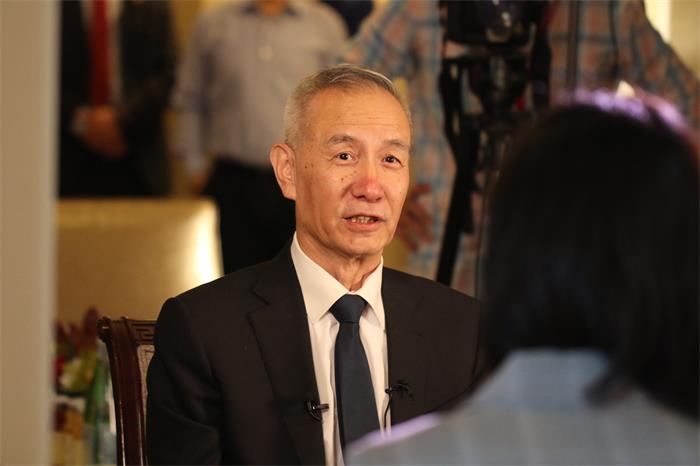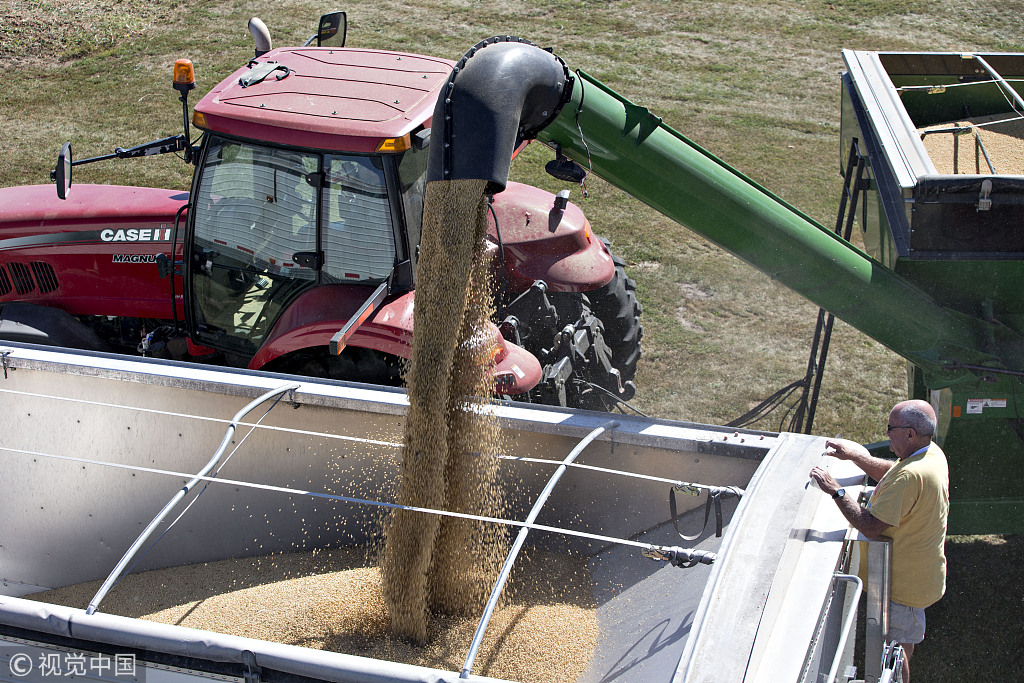China, US agree not to launch trade war


The biggest achievement of the latest consultations between the world’s top two economies is that they agreed not to launch a trade war and to stop slapping tariffs on each other, Vice-Premier Liu He, Chinese President Xi Jinping’s special envoy, said Saturday.
Speaking to the media near the end of what he said was a "positive, pragmatic, constructive and productive" visit to the US, Liu said China and the US have reached consensuses on economic and trade issues, pledging not to engage in a trade war.
On Thursday and Friday, at the direction of President Xi Jinping and US President Donald Trump, a Chinese delegation led by Liu conducted "constructive consultations" with the US team, whose members include Treasury Secretary Steven Mnuchin, Commerce Secretary Wilbur Ross and US Trade Representative Robert Lighthizer.
The two countries agreed to take measures to reduce the US trade deficit in goods, with China significantly increasing purchases of US goods and services, which will help support growth and employment in the US, according to a joint statement issued Saturday.
"There was a consensus on taking effective measures to substantially reduce the United States trade deficit in goods with China," the joint statement reads.
"To meet the growing consumption needs of the Chinese people and the need for high-quality economic development, China will significantly increase purchases of United States goods and services. This will help support growth and employment in the United States," it says.

They also agreed on "meaningful increases" in US exports of agricultural and energy products and greater efforts to increase trade in manufactured goods and services.
The vice-premier said that it is natural for China and the US to reach consensuses this time. However, he offered a note of caution that it will take longer to resolve the structural problems in China-US economic and trade relations.
The healthy development of China-US economic and trade ties is in line with the historical trend, Liu said, adding that the two countries should properly handle their differences through dialogue, and treat them calmly in the future.
In answering a question from China Daily about what will follow in the coming months, Liu said the two sides have already established some working groups, including the agricultural group.
"Maybe some ministers from the US government will lead the groups to Beijing" to have deeper discussions and try to make concrete deals, he said.
At the media briefing, Liu said China is ready to buy goods not only from the US but also from the rest of the world, adding that China, with its large middle-income population, will become the world’s largest market.

This market will be highly competitive, so nations eyeing for market share have to improve the competitiveness of their products and services so that Chinese consumers would like to buy, he said.
Wang Huiyao, founder and president of the Center for China and Globalization, a Beijing-based independent think tank, said the consensuses reached during Liu’s visit augur well for further improvement of the relations between the two countries.
"It has created a good environment and laid a solid foundation for the resolution of any problems that may arise in bilateral trade relations in the future," Wang said.
Jon Taylor, a professor of political science at the University of St. Thomas in Houston, said, "It is encouraging that China and the US worked hard to demonstrate that with mutual respect and win-win cooperation they can accomplish much."
Rick Kimberley, president of Kimberley Farms Inc in Iowa, said Saturday, "This sounds positive that both China and the United States have come to agreement on key issues. I’m sure there will be further discussions to finalize the details."
While increasing agricultural trade between the US and China will provide a safe and affordable supply of protein for a growing Chinese middle-class population, "This will also be good for the US farmers because it will help provide a consistent and growing market for their products," Kimberley said.
































